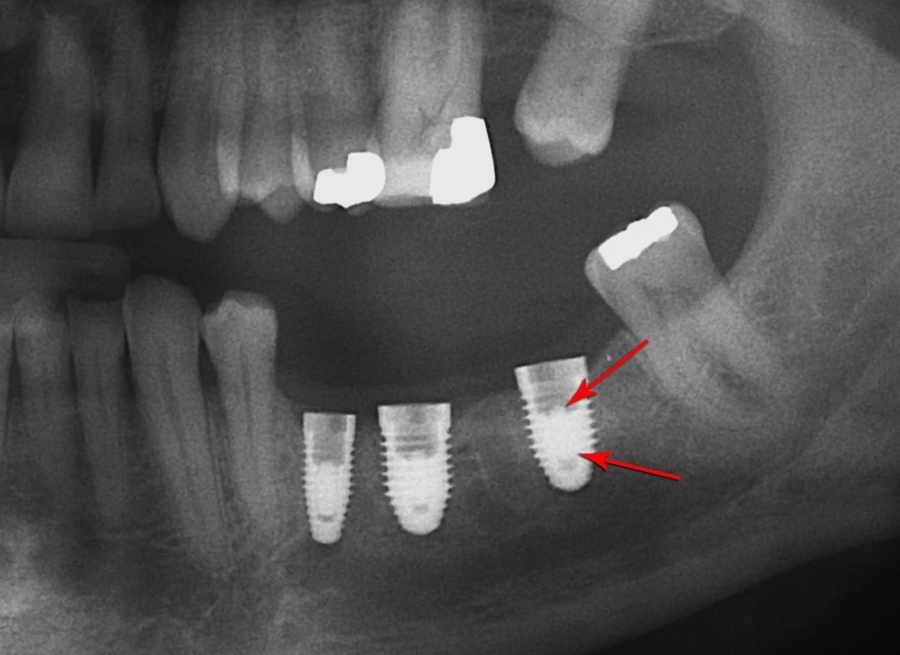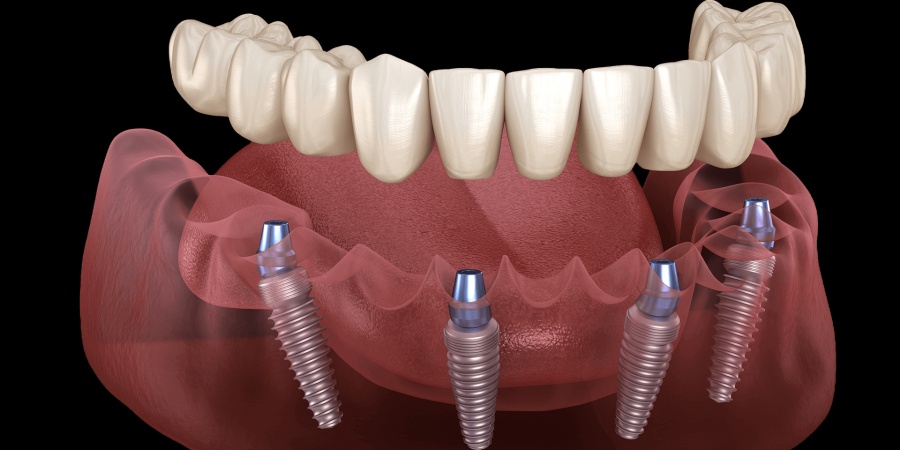
There are many reasons to get a dental implant treatment done. Whether it be packages that include vacations also, like all on 4 implants or all on 6 implants, teeth problems or just aesthetic purposes, implants play an important role in dentistry. Despite all reasons, considering risks, pros and cons, consulting with your dentist is a must.
Dental implant treatment procedure has many challenges, either in the initial stages post-procedure or long-term issues. Identifying signs of potential dental implant failure is crucial for intervention and healthy teeth.
Dental implants are artificial tooth roots made of titanium that are surgically placed into the jawbone. They provide a strong and stable foundation for the replacement teeth.
Dental implant treatment has many steps, including consultation, implant placement, healing, and finally, the placement of the artificial tooth or crown. This procedure has a high success rate, but like any medical treatment, there is always a possibility of complications.
CAUSES OF IMPLANT FAILURE

Implant failure can occur due to many reasons, and understanding these reasons is the first step at preventing them and treating them. While dental implant failure is rare, there are several factors that can contribute to it.
Poor oral hygiene: The most common cause of implant failure is poor oral hygiene. Neglecting proper oral hygiene, such as inadequate brushing and flossing, can lead to the buildup of plaque and bacteria around the implant, increasing the risk of infection.
Smoking: Smoking is not only bad for your overall health, but also known to affect the healing process and compromise the success of dental implants. It reduces blood flow and can weaken the bone structure, making it more susceptible to implant failure.
Excessive Alcohol Consumption: Like smoking, excessive alcohol consumption reduces blood flow, causes dehydration and weakens the bone structure, making the healing process slower and putting you at risk of infection or more problems.
Underlying health conditions: Certain systemic health conditions, such as diabetes or autoimmune diseases, can hinder the body's ability to heal and integrate the implant properly.
Insufficient bone quality or quantity: For dental implants to be successful, there must be enough healthy bone to support the implant. If there is inadequate bone density or volume, it may lead to implant failure, but you dentist will examine this beforehand to prevent any failure.
Surgical errors: Though rare, in some cases, errors during the implant placement surgery, such as improper positioning or inadequate stability, can contribute to implant failure.
COMMON SIGNS OF A FAILED IMPLANT

So how can you know if your implant has failed? Do you have a failed implant? Is it just common pain? Recognizing these symptoms is crucial as it allows for immediate intervention and prevents further damage. Here are some key signs to look out for failed implants:
Pain and Discomfort: One of the first signs of a failed implant is persistent pain or discomfort in the affected area. This pain can range from mild to severe and may be accompanied by swelling or inflammation.
Looseness or Movement: A stable dental implant should not move or feel loose. If you notice any movement or a change in the way your implant feels, it could be a sign of failure.
Gum Infection or Bleeding: In some cases, a failed implant can lead to gum infection or bleeding around the implant site. This can also result in a foul odour or taste in the mouth, accompanied by fever.
If you experience any of these symptoms, immediately consult your dentist or oral surgeon. They will be able to assess the situation and recommend the appropriate treatment options. Remember, early detection is key to resolving the issue and ensuring the long-term success of your dental implant.
CONSULT WITH YOUR DENTIST
If you think there are problems with your dental implant, seek professional help immediately. A thorough examination, including X-rays, will be conducted by your dentist or oral surgeon. Discuss symptoms and changes you have noticed since the implant placement.
Based on their assessment, they will recommend treatment, which may involve removing the implant, addressing underlying issues, and considering alternatives. Early intervention is crucial to prevent further damage and increase the chances of a successful outcome.
TREATMENT OPTIONS FOR A FAILED IMPLANT
If you have a failed implant or just wondering what the treatment options for a failed implant are, there are various. Your dentist or oral surgeon may suggest different treatments based on the extent of the complications and other factors about your situation, since everyone is different.
One of the treatment options is removing the failed implant. This involves carefully extracting the implant and assessing the underlying issues that led to the failure. Once the implant is removed, your dentist may recommend addressing any bone loss or infection that may have occurred as a result.
Another option is to consider alternative dental restoration options. Depending on the condition of your remaining teeth and jawbone, your dentist may recommend a replacement implant or a different type of dental restoration, such as a dental bridge or denture.
HOW TO PREVENT IMPLANT FAILURE
While it is important to know the causes and treatments of implant failure, it is just as important to know the prevention practices for it. To prevent implant failure you should:
Do regular check-ups with your dentist. Your dentist will monitor the health of your remaining teeth and gums, ensuring early detection of any issues that could potentially impact your implant's success.
Maintain good oral hygiene. This is another essential aspect of implant longevity. Brushing your teeth thoroughly twice a day with a soft-bristled brush without being too harsh, flossing daily, and using antimicrobial mouthwashes can help prevent infection and promote healthy gums.
Avoid harmful habits such as smoking and excessive alcohol consumption. These habits can cause failure of implant, as well as affect your overall health. These habits not only jeopardize your oral health but also hinder the healing process and increase the risk of complications.
Remember that there are always risks with procedures like this, and even if you are careful implant failure may happen. Don’t panic, note your symptoms with dates and consult with your dentist.






